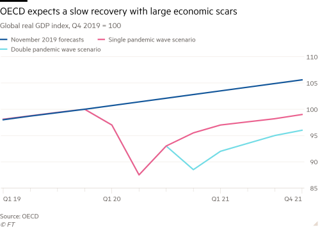New car sales remain in decline but data for Q3 2019 shows the UK's used car sales volumes have risen by almost 20,000 units.
It was the first year-on-year increase after nine consecutive quarters of lower used car transactions, according to the Society of Motor Manufacturers and Traders' analysis of DVLA data.
Between July and September 2.076 million used cars changed hands, 18,925 (0.9%) more than in Q3 2018, but YTD the market remains 0.8% behind the first three quarters of 2018.
Mike Hawes, SMMT Chief Executive, said: “This growth, following a prolonged period of decline, is encouraging and it’s great to see a growing appetite for plug-in and hybrid models as they start to filter down to the used market. However, ongoing economic uncertainty and growing confusion over local clean air zones make it difficult to predict the future."
Demand for diesel models was up 1.4% in the quarter with 858,442 changing hands, while petrol sales were flat with a slight drop of -0.2%.
Plug-in electric and hybrid models showed a solid increase of 13.0%, totalling 37,589 units and increasing their share of sales to 1.8% from 1.6% in Q3 2018.
Superminis remained the most popular segment, reflecting the trend in the new car market, with 684,929 changing hands, accounting for 33.0% of transactions. The lower medium and upper medium segments were the next most popular, with 27.0% and 11.7% shares respectively. Meanwhile, the dual purpose segment showed the largest percentage growth (15.2%) with 11.6% market share.
 The SMMT continues to push for more favourable conditions for the new car market.
The SMMT continues to push for more favourable conditions for the new car market.
Hawes said: "To make meaningful environmental gains, we need to get more of the latest, lowest emitting cars on to our roads replacing older ones quickly – and that means delivering the right conditions and policies to give new and used buyers confidence to invest in the vehicles that best suit their driving needs and budgets.”
Used car marketplaces were keen to share their views on the data.
Heycar's chief commercial officer Karen Hilton said the increase in diesel models in the used market could be less to do with consumer behaviour changing and more as a result of the stock that is in the used car market.
“Consumers have been moving away from buying new diesels in recent years as a result of new regulations and general uncertainty driven by a lack of clarity from the government and the media. In the absence of a scalable solution on alternatives, in many cases diesel may well still be the more attractive option - especially as prices are increasingly attractive," she said.
Ian Plummer, commercial director of Auto Trader, said the used market remains the biggest opportunity for retailers in the closing months of 2019 due to being nearly four time times the size of the new car market and with the potential for greater margins.
“Whilst the current economic climate isn’t driving consumers to delay their next car purchase, it is affecting their decision between new or used.
"Indeed, rather than the average transaction cycle of 3.4 years extending to four, as Brexit and election anxieties persist we're seeing people less willing to risk stretching their budget to a new car and instead reverting to what may be perceived as a better value and lower cost alternative," he said.
Plummer said the same considerations are also affecting their choice in terms of fuel type, andbuyers are now often viewing diesels as better value for money.
“Despite the lack of a compelling narrative or any meaningful financial incentives for consumers to make the switch from fossil to electric, used alternatively fuelled sales recorded another strong performance over the last quarter. We’re seeing a similar picture on our marketplace where searches for pure electric vehicles have increased 59% since October 2018. What’s more, this month the Renault ZOE is both the fastest and second fastest selling used car in the UK, the first time a pure EV has achieved the 'one-two'.
“In case there were any doubts, there is clearly a growing market for second-hand low emission vehicles.
"However, whilst AFVs undoubtedly represent an exciting opportunity for retailers, the biggest challenge to consumer adoption may no longer be the traditional perceived barriers to entry, such as cost and infrastructure, but rather a matter of long-term supply and demand for affordable nearly new or used models," said Plummer.




















Login to comment
Comments
No comments have been made yet.